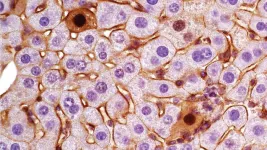Auditory Journalism
“‘No Mercy’ Chapter 5: With Rural Hospital Gone, Cancer Care Means a Daylong Trek”
Sarah Jane Tribble (Photo), Taunya English (Photo), Kaiser Health News
Greg Munteanu (Photo), Saint Louis Public Radio Magazine
“One Man’s Search for the DNA Data That Could Save His Life”
By Sarah Elizabeth Richards (Photo), WIRED “Detecting Cancer Using Limited Resources”
By Emily Sohn (Photo), Nature Newspaper
“They found a lump. Doctors said not to worry. These are the stories of men with breast cancer.”
By David Oliver (Photo), USA Today Online/Multimedia:
“With Bab AlHawa Border Closed, Syrians Are Deprived of Cancer Treatment”
By Ali Al Ibrahim (Photo), Raseef22 and SIRAJ “The trust-builder: a cancer center director’s try-it-all strategy for breaking the barriers between research and Black patients”
By Angus Chen (Photo), STAT News “Chadwick Boseman’s tragedy is America’s tragedy: In colorectal cancer hot spots, young men are dying at higher rates”
By Nicholas St. Fleur (Photo), STAT News All prize recipients will each receive a $5,000 cash prize and be honored with a commemorative award on Sunday, April 16, during the Opening Ceremony at the AACR Annual Meeting 2023 at the Orange County Convention Center in Orlando, Florida. The AACR Annual Meeting brings together thousands of researchers, clinicians, survivors, patients, and advocates to share the latest advances in cancer science and medicine.
Due to challenges resulting from the COVID-19 pandemic, the AACR did not award the AACR June L. Biedler Prize for Cancer Journalism in 2021 or 2022. For the 2023 prize, the judging panel considered submissions published or broadcast for the first time between January 1, 2020, and November 30, 2022.
The AACR June L. Biedler Prize for Cancer Journalism was established to raise awareness of the critical role that the media play in educating the public about cancer and cancer research and to recognize outstanding journalistic coverage that enhances the lay public’s understanding of cancer science. The prize is named in honor of June L. Biedler, PhD, and is supported by a generous bequest she made to the AACR.
“Dr. Biedler was an extraordinary force in cancer research, and her contributions have been crucial to furthering our progress against cancer. Equally important, she was a passionate science communicator who taught others in the field how to explain their findings to a lay audience,” said Margaret Foti, PhD, MD (hc), chief executive officer of the AACR. “The AACR is extremely proud to award the AACR June L. Biedler Prize for Cancer Journalism to these distinguished journalists who have not only brilliantly reported on complex topics such as tumor sequencing technology and disparities in cancer health and treatment, but have also shed light on the stigmas that surround certain cancers and the vulnerability of patients whose care has been complicated by the COVID-19 pandemic.”
“I have long been impressed by the strength of the entries in the Biedler Prize, but this year’s applicants were truly exceptional,” said Clifton Leaf, adjunct professor of journalism at Columbia University’s Graduate School of Journalism and former editor-in-chief of FORTUNE, who has served as the Biedler Prize’s chief judge since the award was established in 2016. “But even among this elite group, our winners stood out for the depth and clarity of their reporting.”
COMMENTARIES FROM THE JUDGING PANEL
Auditory Journalism
Commentary on “‘No Mercy’ Chapter 5: With Rural Hospital Gone, Cancer Care Means a Daylong Trek” by Sarah Jane Tribble and Taunya English, Kaiser Health News; Greg Munteanu, Saint Louis Public Radio
In this piece, Sarah Jane Tribble, Taunya English, and Greg Munteanu explore the challenges faced by rural Americans facing cancer diagnoses and treatments. The story follows a 65-year-old woman with blood cancer who initially received her weekly chemotherapy treatment at her local hospital. After that hospital closed, she had to seek treatment farther away, turning what was a 30-minute appointment into a three-hour commitment. Tribble rides along during the journey, expertly documenting the experience of a woman forced to travel great distances for her cancer treatments. With story editing from English and a masterful sound mix from Munteanu, this podcast episode highlights the often-unseen barriers that cancer survivors who live in rural areas face and the disparities in cancer incidence and outcomes that these populations experience. Magazine
Commentary on “One Man’s Search for the DNA Data That Could Save His Life” by Sarah Elizabeth Richards, WIRED
This story by Sarah E. Richards highlights the barriers that patients with cancer face when seeking genetic sequencing of their tumors, and how lack of access to this technology can limit treatment options for individuals. Told through the lens of one man’s quest to understand and treat his metastatic prostate cancer, Richards explains complex topics such as tumor sequencing technology, government regulations, data privacy, clinical trials, and the importance of centralized genetic databases. The piece renders these complicated topics more approachable, demonstrating how sequencing can identify new treatment avenues for patients, including potentially lifesaving options for patients who have otherwise run out of effective treatment options. Commentary on “Detecting Cancer Using Limited Resources” by Emily Sohn, Nature
Emily Sohn spotlights the challenges experienced by women in low- and middle-income countries in receiving routine cancer screening and care for gynecological malignancies, including cervical and breast cancer. Through skillful evidence-based reporting, Sohn outlines barriers to addressing these challenges, including limited and out-of-date infrastructure, medical distrust, and lack of information and education surrounding cancer screening and treatment. This piece highlights the need for increased attention to cancer inequities faced by women around the world while providing examples of potential solutions that researchers, clinicians, and public health professionals are currently testing to improve cancer screening and treatment for these populations. Newspaper
Commentary on “They found a lump. Doctors said not to worry. These are the stories of men with breast cancer.” by David Oliver, USA Today
Through the stories of five men diagnosed with breast cancer, David Oliver examines the reluctance of many physicians to test for male breast cancer until the malignancy has progressed to a more advanced stage, and the stigma these survivors often face. Collectively, Oliver’s interviews illuminate the alienation that men can feel when diagnosed with a cancer type that is widely perceived as exclusively affecting women. This moving piece raises much-needed awareness about this important topic. Online/Multimedia
Commentary on “With Bab AlHawa Border Closed, Syrians Are Deprived of Cancer Treatment” by Ali Al Ibrahim, Raseef22 and SIRAJ
Through a mixture of storytelling, videography, and photography, Ali Al Ibrahim profiles cancer survivors living in Syria and highlights the challenges they faced crossing the AlHawa border into Turkey after it closed due to the COVID-19 pandemic. Al Ibrahim interviews Syrians stranded at the border, unable to access the vital cancer treatment they had previously been receiving in Turkey, and shines a spotlight on the devastating consequences. This poignant piece draws attention to the heartbreaking impact that the pandemic, especially when coupled with ongoing conflict and violence, had on some of the most vulnerable patients with cancer around the world. Commentary on “The trust-builder: a cancer center director’s try-it-all strategy for breaking the barriers between research and Black patients” by Angus Chen, STAT News
Angus Chen profiles Dr. Robert Winn, director of the Virginia Commonwealth University Massey Cancer Center, and his boots-on-the-ground approach to addressing cancer and health disparities in underserved patient populations. The piece demonstrates how Dr. Winn is rethinking how to deliver cancer care to underserved communities using what he calls “high tech, high touch” approaches. Chen’s piece helps inform readers about the complex intersection of cancer and health disparities, health equity, distrust of the medical system by underrepresented minority communities, and the intricacies of community-level health care, all while brilliantly showcasing Dr. Winn’s passion and nontraditional yet highly effective approaches to addressing cancer disparities. Commentary on “Chadwick Boseman’s tragedy is America’s tragedy: In colorectal cancer hot spots, young men are dying at higher rates” by Nicholas St. Fleur, STAT News
Through the tragic stories of actor Chadwick Boseman and a young Black basketball coach, Nicholas St. Fleur’s piece expertly highlights the recent increase in early-onset colorectal cancer and the troubling disparities in incidence and mortality observed in Black men compared to white men. St. Fleur uses these specific patient experiences as a backdrop to discuss the complex reasons Black men may avoid medical care despite experiencing disease symptoms, including deep-rooted mistrust of the medical establishment and unique challenges presented by the COVID-19 pandemic. This article is an excellent example of relatable and engaging health reporting that provides important information to a broad audience about cancer and health disparities, health equity, and the alarming increases in colorectal cancer incidence in adults under 50.
# # #
END

